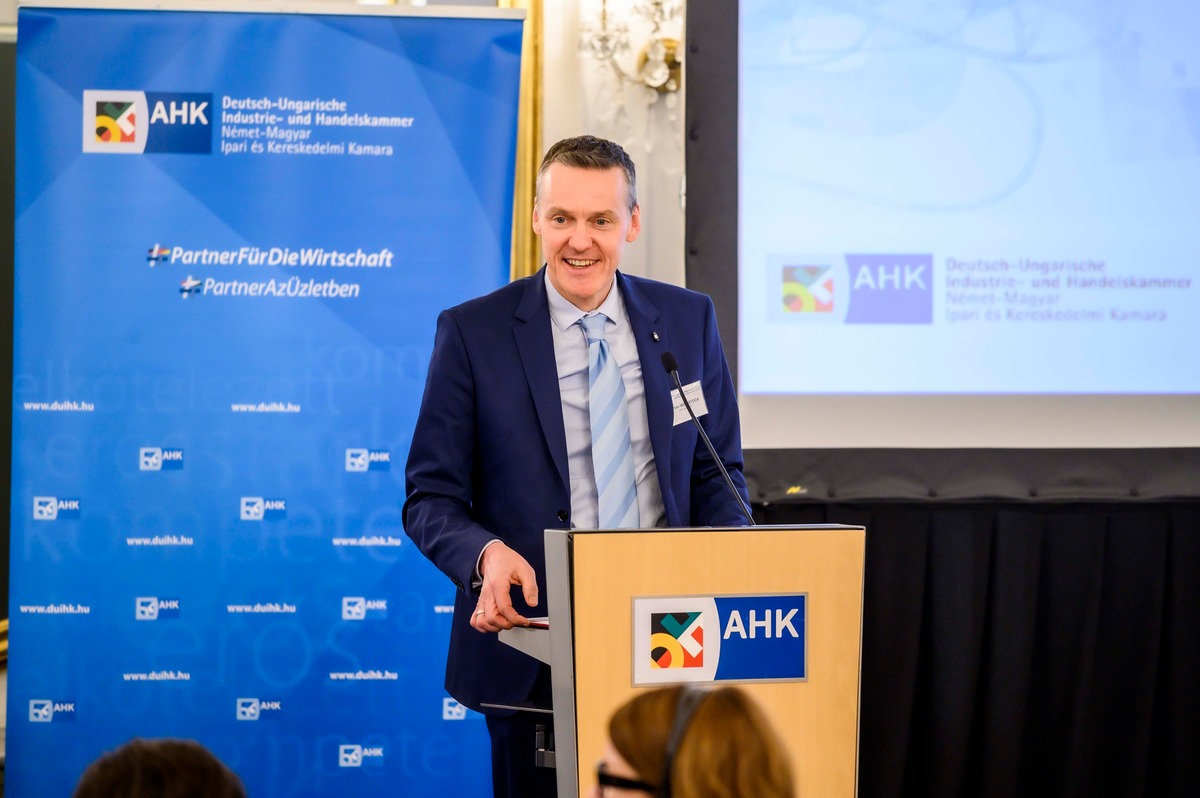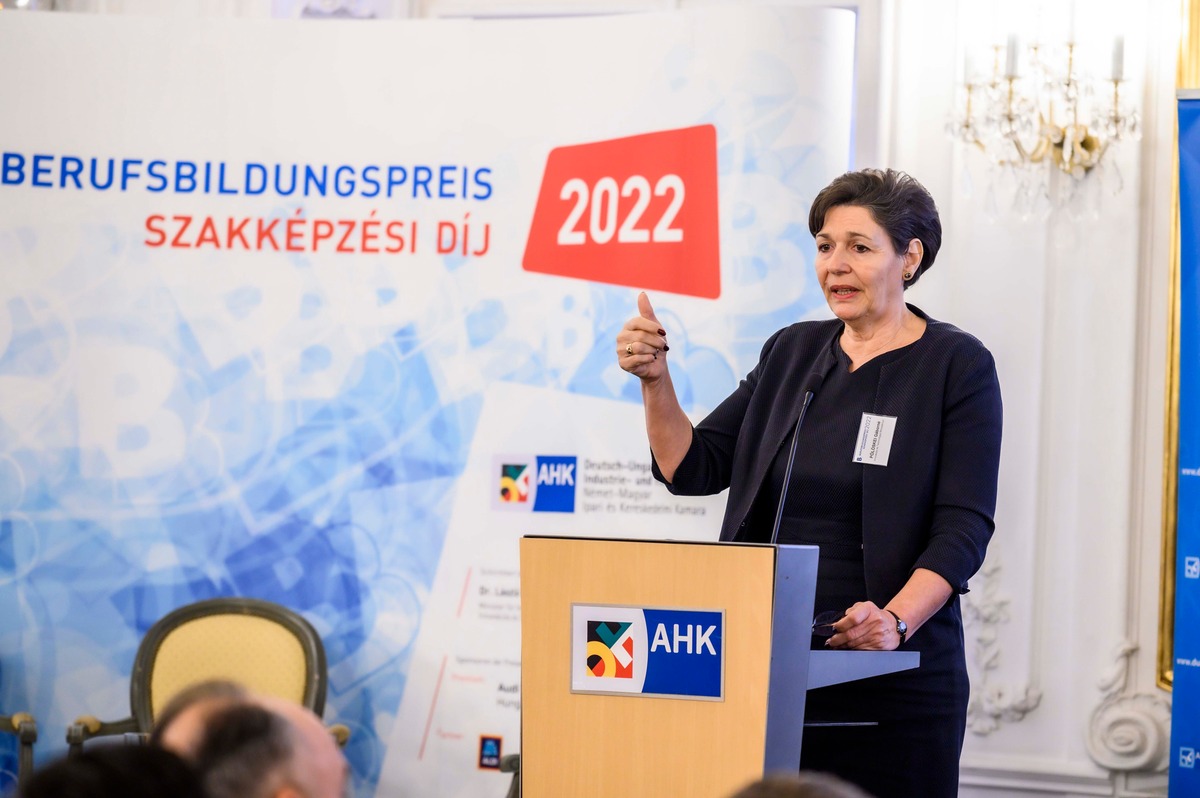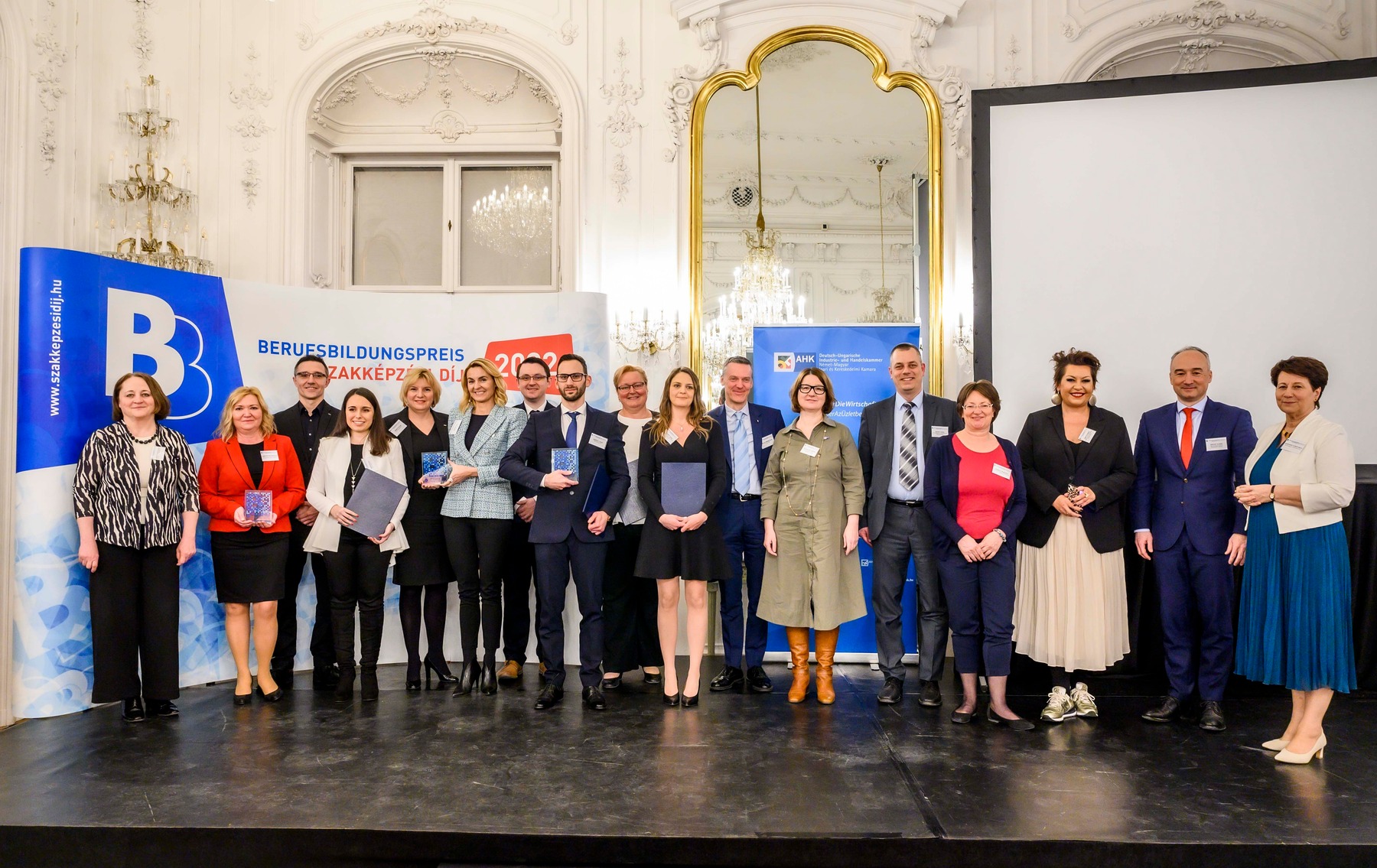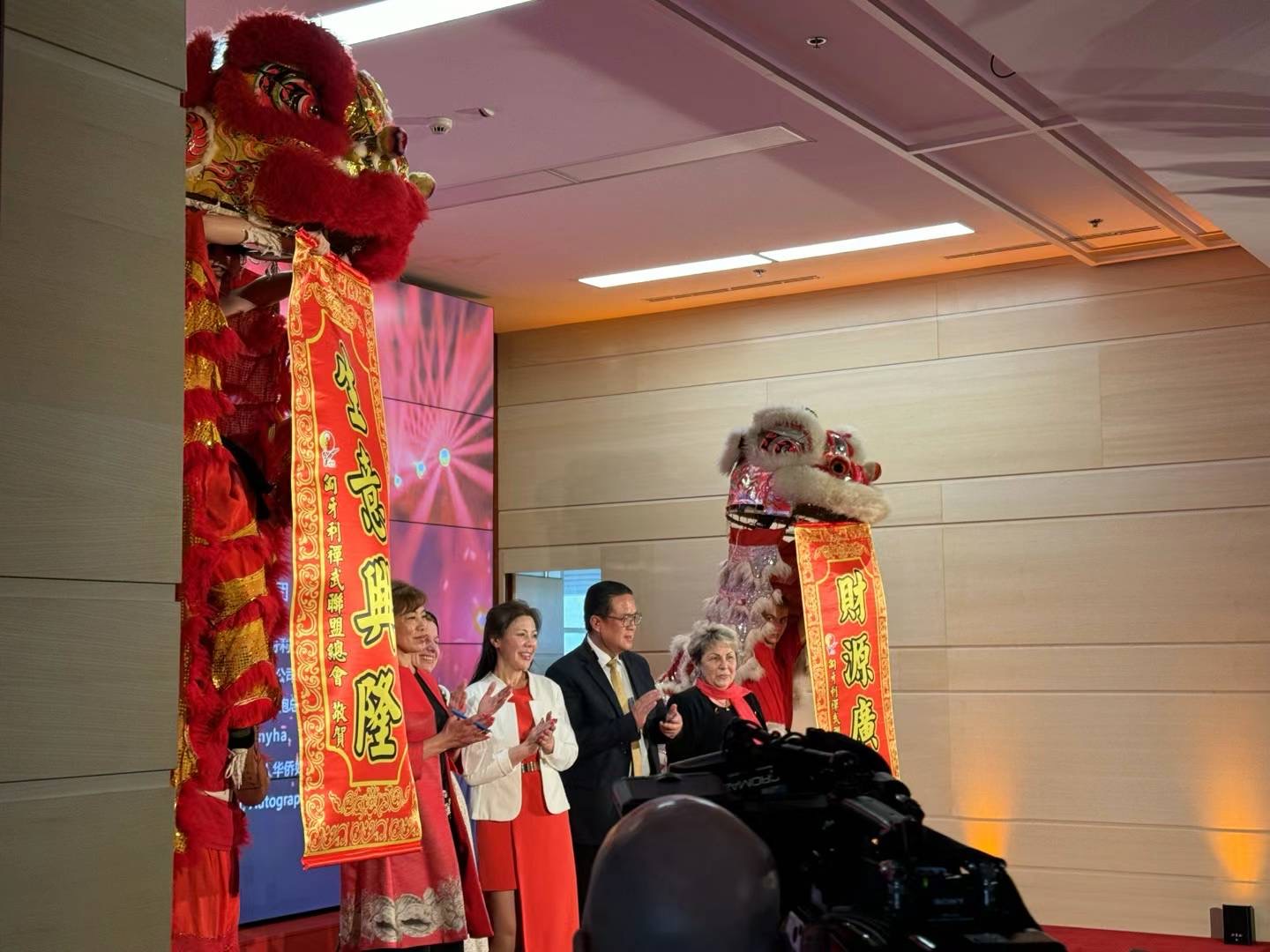German-Hungarian Chamber Awards Exemplary Vocational Training

Achim Weinstock
Photo by DUIHK/Pelsőczy
The German-Hungarian Chamber of Industry and Commerce (DUIHK) has awarded its Vocational Training prize for the ninth time, with two training institutions, a company, and a local vocational initiative being honored this year.
In the “Motivation” category, the Automotive and Machinery Institute of the Vocational Training Center of Győr was awarded for its “Ki(d)s Engineer Camp,” which is provides career guidance for fifth- and sixth-grade students.
The “Cooperation” winner was the training center for the energy industry company MVM. The new unit aims to create standardized apprenticeships in the sector all over Hungary.
The third category, “Innovation,” went to auto manufacturer Audi Hungaria Zrt. for its “Compulsory? Training?” initiative, which uses the methodological potential of gamification. The project focuses on learning about relevant business topics such as environmental management and IT security through its playful approach.
Finally, a special prize was given by the awards jury to the Mórahalom Foundation for Vocational Training. The small town in southern Hungary, about 180 km from Budapest by road, set up a new, modern vocational school where local students, as well as those from neighboring Serbia, are trained in professions that are particularly needed in the region.
“For a few years, Hungarian vocational training has been undergoing fundamental changes,” Dirk Wölfer, the chamber’s head of communications, tells the Budapest Business Journal. “The aim is to adapt the successful German scheme of a ‘dual system’ to Hungary, thus combining theoretical education in schools and practical, hands-on training in companies.”

Gáborné Pölöskei
To that end, the German-Hungarian Chamber’s Berufsbildungspreis (Vocational Education Award or BBP) was launched in 2013 to support this transformation. This year’s ceremony was held in the ballroom of the Andrássy University (the only completely German-language university outside the German-speaking countries) on March 10.
DUIHK vice president Achim Weinstock emphasized that a well-designed and functioning vocational education and training system would create a triple win-win situation: for the young, because they acquire “marketable” knowledge and skills that open up a wide range of career opportunities for them; for the companies that engage in their own training activities, because they get well-qualified and motivated employees; and finally for society as a whole, which benefits from competitive companies and high employment rates.
The award was an important instrument to promote these benefits by putting outstanding efforts into the public spotlight, Weinstock said. It is held in high esteem among players in vocational training in Hungary: The Minister of Innovation and Technology (ITM) is its Patron, while the independent Jury comprises representatives from the Hungarian Chamber of Commerce and Industry, the ITM, vocational schools, as well as corporate and education experts.
After laying down the foundations for a new vocational training system, the government seeks to enhance the efficiency and flexibility of the framework, said Pölöskei Gáborné, Deputy State Secretary for Vocational Education and Training at the Ministry of Innovation and Technology (ITM).

The key focus will shift to the quality of the “outcome,” i.e., on better matching the content of the knowledge taught with real company needs. Therefore, efforts will be made to keep pace with and reflect changes in the skills needed by real-world businesses in the education system, for example, by accurately monitoring the labor market success of school leavers.
The state secretary also announced that further adjustments are planned to widen ways for transition between different secondary and tertiary educational sub-systems.
In the 2022 competition, 13 companies, vocational schools and chambers of commerce and industry from all over Hungary were shortlisted for the three main categories. All the applications were evaluated by a seven-member independent jury of renowned vocational education experts.
When asked what she appreciated most in the many projects submitted, one jury member said: “All of them are characterized by the extraordinary personal commitment of those involved: teachers, corporate trainers, local officials and, of course, the students themselves. This makes every single project so valuable; for them, and for those who can make use of the new ideas.”
This article was first published in the Budapest Business Journal print issue of March 25, 2022.
SUPPORT THE BUDAPEST BUSINESS JOURNAL
Producing journalism that is worthy of the name is a costly business. For 27 years, the publishers, editors and reporters of the Budapest Business Journal have striven to bring you business news that works, information that you can trust, that is factual, accurate and presented without fear or favor.
Newspaper organizations across the globe have struggled to find a business model that allows them to continue to excel, without compromising their ability to perform. Most recently, some have experimented with the idea of involving their most important stakeholders, their readers.
We would like to offer that same opportunity to our readers. We would like to invite you to help us deliver the quality business journalism you require. Hit our Support the BBJ button and you can choose the how much and how often you send us your contributions.






.png)

